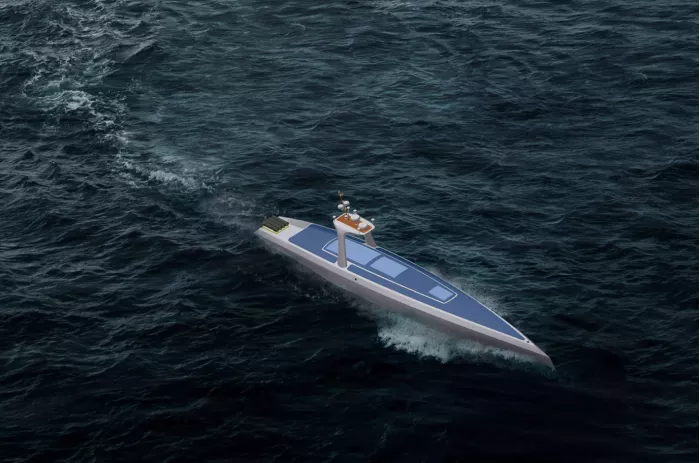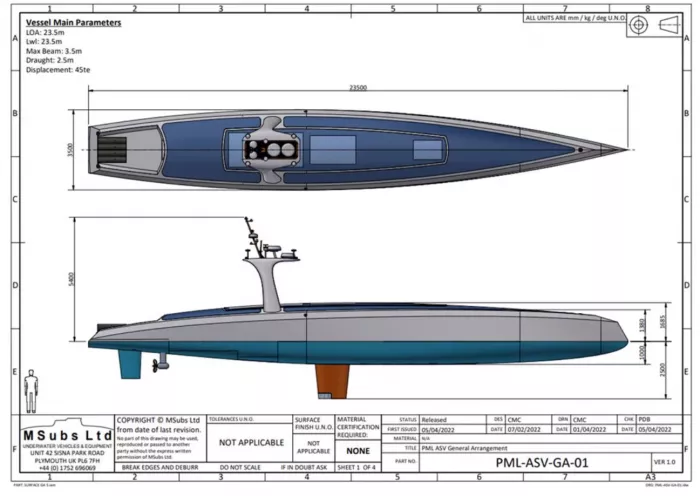According to new atlas, sending a ship of marine scientists across the Atlantic will cost a lot of money. They are all doing research along the way. This is where Oceanus comes into play, because the plan requires it to complete the work without any crew The British Plymouth Marine Laboratory commissioned m subs Co., Ltd. in Plymouth to design and build this independent monohull, with financial support from the Natural Environment Research Council

The project was inspired by the success of the autonomous ship "Mayflower" supported by IBM, which was also designed and built by M subs. In fact, Oceanus' name comes from the first child born on the original Mayflower in 1620.
According to the plan just released by Plymouth marine laboratory, Oceanus will be 23.5m long and 3.5m wide. It will be self righting and will be driven by two pod drive motors installed at the back. These motors will be powered by a battery pack, which will be charged by a diesel engine driven generator and a deck integrated solar panel.

The battery pack will also power many of the onboard electronic components on Oceanus. These components will include multiple sensors for collecting oceanographic data, as well as operating lights, cameras, and a multi beam sonar and depth sensing system.
During the initial voyage from Britain to the Falkland Islands, the artificial intelligence ship will be guided by GPS and two onboard weather stations. It will also use a 4g/5g module and two satellite communication domes to transmit real-time data and status updates to the command center at Plymouth laboratory. The data collected will cover such areas as climate change, biodiversity, fisheries and biogeochemistry (the latter is defined as "the study of chemical, physical, geological and biological processes and reactions that govern the composition of the natural environment").
At present, there is no information about when Oceanus is expected to complete the construction or start the transatlantic voyage.
Icarus Allen, CEO of Plymouth marine laboratory, said: "Oceanus will make use of the latest artificial intelligence technology to enable us to promote the forefront of marine science and open up new opportunities for the way we monitor the marine environment. Not long ago, this was a fantasy in science fiction, but through the design and development of Oceanus, we are really opening up the future of ocean research."